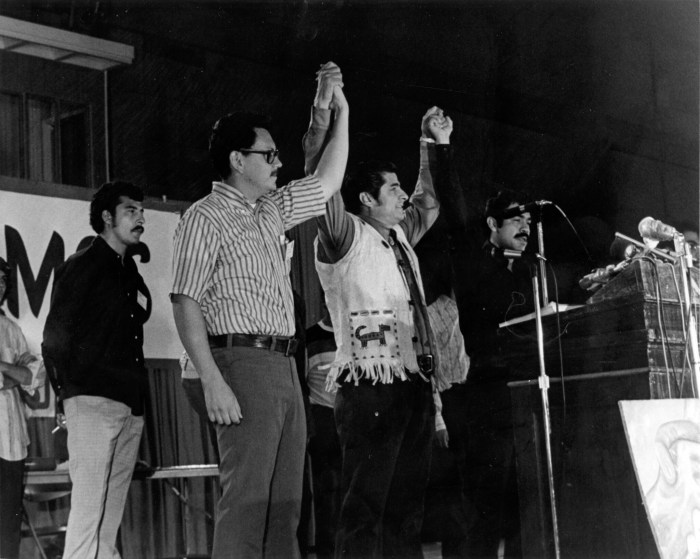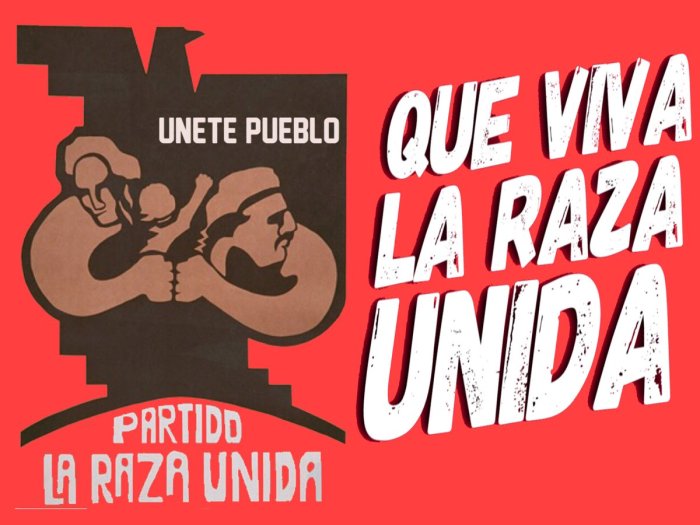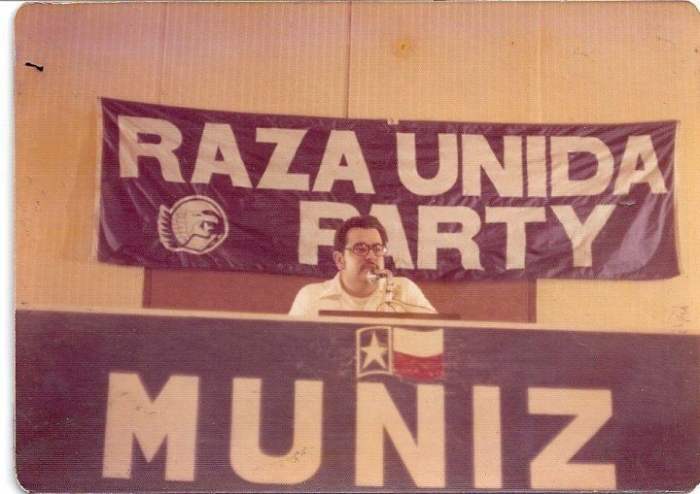In the 1970s la raza unida focused its efforts on – In the 1970s, La Raza Unida emerged as a powerful force for political empowerment and social justice for the Latino community. Driven by a deep commitment to addressing the challenges faced by Latinos, the organization played a pivotal role in shaping the political landscape and advancing the rights of its members.
La Raza Unida’s mission was to unite Latinos across the United States, promote their political participation, and advocate for their needs. The organization’s leaders, including Jose Angel Gutierrez and Corky Gonzalez, were instrumental in mobilizing the Latino community and raising awareness about the issues affecting them.
La Raza Unida’s Origins and Goals: In The 1970s La Raza Unida Focused Its Efforts On
The 1970s marked a period of significant social and political upheaval in the United States, with the rise of civil rights movements and the emergence of marginalized groups seeking greater representation and empowerment. Amidst this backdrop, La Raza Unida (The United Race) emerged as a prominent Latino political organization, dedicated to advancing the rights and interests of the Mexican-American community.
La Raza Unida’s mission was to unite Latinos across political, economic, and social lines. The organization sought to promote self-determination, economic justice, and educational opportunities for Mexican-Americans. Key leaders included José Ángel Gutiérrez, a former professor at Texas A&M University, and Corky Gonzales, a Denver-based activist.
The motivations and aspirations of La Raza Unida’s members were rooted in the experiences of discrimination, poverty, and political disenfranchisement faced by Mexican-Americans. The organization sought to empower the Latino community by fostering political consciousness, challenging institutional racism, and advocating for social change.
Political Strategies and Achievements

La Raza Unida employed a multifaceted political strategy that included electoral campaigns and community organizing. The organization ran candidates for local, state, and national offices, aiming to increase Latino representation in government. They also organized grassroots movements to mobilize the Latino community, address local issues, and build a sense of political empowerment.
Notable political campaigns included the 1972 presidential campaign of José Ángel Gutiérrez and the successful election of Ricardo Cruz as mayor of Denver in 1975. La Raza Unida also played a significant role in the passage of the Voting Rights Act of 1975, which expanded voting rights for Latinos and other minority groups.
The organization’s political achievements contributed to increased visibility and recognition of Latino issues, and helped to create a more inclusive political landscape in the 1970s.
Social and Cultural Initiatives
Beyond its political activities, La Raza Unida implemented a range of social and cultural programs aimed at improving the lives of Mexican-Americans. The organization established schools, clinics, and community centers, providing much-needed services to underserved communities.
La Raza Unida’s educational initiatives focused on providing access to quality education for Latino students. The organization founded the Colegio Jacinto Treviño in Denver, which offered bilingual and bicultural education. The organization also established the National Hispanic University in California, which became the first accredited Hispanic-serving institution of higher education in the United States.
The organization’s healthcare programs provided affordable medical care to low-income Latinos. La Raza Unida established clinics in various cities, offering primary care, dental services, and mental health services.
La Raza Unida’s social initiatives played a vital role in addressing the social and economic challenges faced by Mexican-Americans and contributed to the overall well-being of the Latino community.
Challenges and Controversies

Despite its successes, La Raza Unida faced numerous challenges and controversies during its existence. Internal divisions arose over ideological differences and political strategies. Some members favored a more militant approach, while others advocated for a more moderate path.
External pressures also mounted against the organization. Law enforcement agencies targeted La Raza Unida activists, accusing them of radicalism and inciting violence. The organization was also criticized by some Mexican-American leaders who viewed it as divisive and counterproductive.
The controversies surrounding La Raza Unida led to a decline in its membership and influence in the late 1970s. However, the organization’s legacy continues to be debated and discussed by scholars and activists today.
Legacy and Impact

La Raza Unida’s impact on the Latino community and American society has been profound and lasting. The organization played a pivotal role in raising awareness of Latino issues, increasing political representation, and promoting social justice.
La Raza Unida’s political campaigns and community organizing efforts helped to empower Mexican-Americans and create a more inclusive political landscape. The organization’s social and cultural initiatives provided essential services to underserved communities and contributed to the overall well-being of the Latino population.
The legacy of La Raza Unida continues to inspire contemporary political and social movements. The organization’s emphasis on self-determination, economic justice, and educational opportunities remains relevant today, and its contributions to Latino empowerment and social change are widely recognized.
Popular Questions
What were the key goals of La Raza Unida?
La Raza Unida’s key goals included increasing Latino political participation, promoting education and healthcare, and advocating for economic empowerment.
What were some of La Raza Unida’s most significant achievements?
La Raza Unida’s achievements include electing several Latino candidates to public office, establishing bilingual education programs, and organizing community health clinics.
What were some of the challenges faced by La Raza Unida?
La Raza Unida faced challenges such as internal divisions, external pressure from law enforcement, and limited resources.